The Pulse: Risky Play
June 28, 2020
“Be careful!” “Don’t fall!” “Watch out!” As a parent, grandparent or caregiver to young children, you have likely said these phrases many, many times.
Did you know? Only 39 per cent of five to 17 year olds are reaching their recommended physical activity levels. Over the years, as children have increasingly played in more controlled, indoor environments, there have been fewer chances for them to stretch their imaginations and physical limits in healthy and creative ways.
With summer around the corner, children across BC will have more opportunities to head out and create new adventures. This session of The Pulse, led by Dr. Mariana Brussoni, Investigator at BC Children’s Hospital Research Institute, dives into the concept of “risky play” and how this type of play in outdoor settings can benefit a child’s social, physical, and emotional development.
See below to watch a recording of the Pulse.
Resources
Outside Play: https://outsideplay.ca/
Brussoni Lab: https://brussonilab.ca/
Please note, if your question was specific to your child or family, please reach out to your medical team or family physician directly.
Resources
We recommend everyone to follow the public health guidance which is updated regularly. See here for more information: https://www.healthlinkbc.ca/more/health-features/coronavirus-disease-covid-19
For more information on specific illnesses/conditions, please see pages 4 and 5 in this document: http://www.bccdc.ca/resource-gallery/Documents/Guidelines%20and%20Forms/Guidelines%20and%20Manuals/Epid/CD%20Manual/Chapter%202%20-%20Imms/Part4/COVID-19_mRNA_Vaccine_Comirnaty_Pediatric.pdf
There is currently no data to suggest that is the case, but a relatively small number of adolescents and young children have received 3 doses using the extended interval schedule.
To learn more about the side effects and/or risks of the vaccine for children with specific conditions or allergies, please refer to pages 4 and 5 of this document: http://www.bccdc.ca/resource-gallery/Documents/Guidelines%20and%20Forms/Guidelines%20and%20Manuals/Epid/CD%20Manual/Chapter%202%20-%20Imms/Part4/COVID-19_mRNA_Vaccine_Comirnaty_Pediatric.pdf
There is no evidence to suggest that and no plausible biological mechanism by which that would occur.
There are some short-term side effects which in general terms affect the nervous system, such as headache. Rare cases of ‘nerve system’ disorders have been reported with mRNA vaccines in adults (such as facial paralysis/Bell’s palsy). For more information, please refer to this document: http://www.bccdc.ca/resource-gallery/Documents/Guidelines%20and%20Forms/Guidelines%20and%20Manuals/Epid/CD%20Manual/Chapter%202%20-%20Imms/Part4/COVID-19_mRNA_Vaccine_Comirnaty_Pediatric.pdf
There is no evidence to suggest that and no plausible biological mechanism by which that would occur.
Data collected at BCCH and across Canada so far have not identified T1D as a specific risk factor for worse outcomes with COVID-19. The most consistent finding from multiple studies indicates that the presence of multiple co-morbidities is the most significant risk of more severe disease. For more information, please visit the following resource:
Short term (2-3 months) effectiveness in adults who have had at least 2 doses plus a booster of an mRNA vaccine is ~60% against any symptomatic infection and ~90% against hospitalization. We do not have vaccine effectiveness data specifically for children.
Yes – current recommendations for children 5 years and older are 2 doses for most individuals and 3 doses for those with moderate to severe immunosuppression, plus a booster recommended for some. For more information, please see here: https://www.canada.ca/en/public-health/services/immunization/national-advisory-committee-on-immunization-naci.html
Antibody responses in children aged 5-11 years old receiving 1/3 dose was similar to young adults receiving full dose.
Kids never stop fighting. What if you never stop giving?
When you give a monthly gift, you’re choosing to stand alongside us to show every kid who needs our help that you’ll never stop caring.
Give monthly
